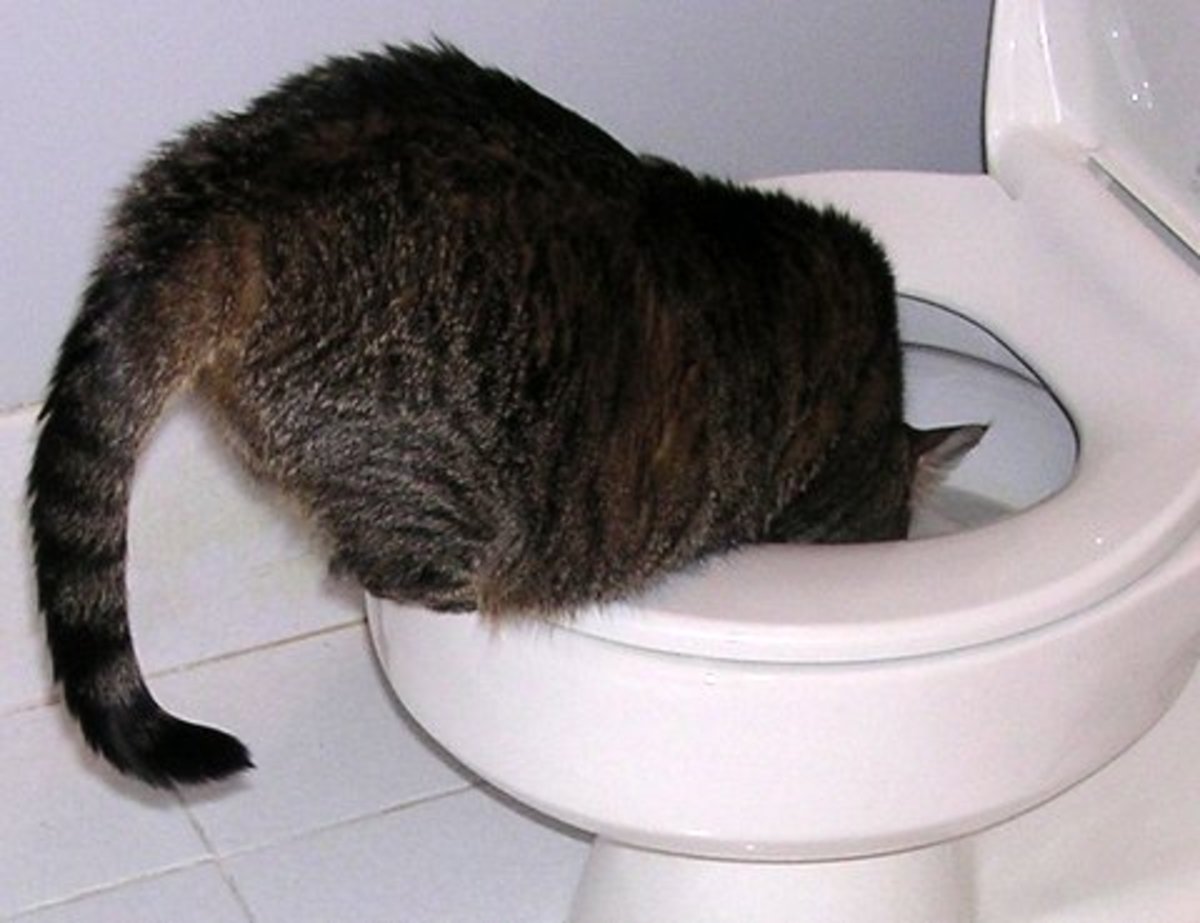Reasons You Should Never Flush Cat Poop Down Your Toilet - Important Facts
Reasons You Should Never Flush Cat Poop Down Your Toilet - Important Facts
Blog Article
Just how do you really feel on the subject of Don’t flush cat feces down the toilet?

Introduction
As feline proprietors, it's essential to bear in mind just how we get rid of our feline close friends' waste. While it may seem hassle-free to purge cat poop down the bathroom, this technique can have detrimental repercussions for both the environment and human health and wellness.
Alternatives to Flushing
The good news is, there are more secure and more accountable methods to get rid of pet cat poop. Take into consideration the following options:
1. Scoop and Dispose in Trash
One of the most typical technique of getting rid of feline poop is to scoop it right into an eco-friendly bag and throw it in the trash. Be sure to use a devoted litter scoop and get rid of the waste promptly.
2. Use Biodegradable Litter
Choose naturally degradable feline trash made from materials such as corn or wheat. These trashes are eco-friendly and can be securely disposed of in the garbage.
3. Hide in the Yard
If you have a backyard, think about burying cat waste in a designated location far from veggie gardens and water resources. Make certain to dig deep adequate to stop contamination of groundwater.
4. Mount a Pet Waste Disposal System
Invest in a pet waste disposal system especially made for pet cat waste. These systems utilize enzymes to break down the waste, decreasing odor and environmental influence.
Wellness Risks
Along with ecological problems, purging cat waste can also pose wellness dangers to people. Cat feces might consist of Toxoplasma gondii, a parasite that can cause toxoplasmosis-- a possibly serious disease, specifically for expectant women and people with damaged immune systems.
Ecological Impact
Flushing cat poop introduces hazardous virus and bloodsuckers into the water supply, presenting a considerable risk to marine ecological communities. These pollutants can negatively impact marine life and compromise water top quality.
Final thought
Responsible pet possession extends past offering food and sanctuary-- it likewise involves appropriate waste monitoring. By avoiding flushing feline poop down the toilet and going with alternative disposal techniques, we can minimize our ecological footprint and shield human health and wellness.
Why Can’t I Flush Cat Poop?
It Spreads a Parasite
Cats are frequently infected with a parasite called toxoplasma gondii. The parasite causes an infection called toxoplasmosis. It is usually harmless to cats. The parasite only uses cat poop as a host for its eggs. Otherwise, the cat’s immune system usually keeps the infection at low enough levels to maintain its own health. But it does not stop the develop of eggs. These eggs are tiny and surprisingly tough. They may survive for a year before they begin to grow. But that’s the problem.
Our wastewater system is not designed to deal with toxoplasmosis eggs. Instead, most eggs will flush from your toilet into sewers and wastewater management plants. After the sewage is treated for many other harmful things in it, it is typically released into local rivers, lakes, or oceans. Here, the toxoplasmosis eggs can find new hosts, including starfish, crabs, otters, and many other wildlife. For many, this is a significant risk to their health. Toxoplasmosis can also end up infecting water sources that are important for agriculture, which means our deer, pigs, and sheep can get infected too.
Is There Risk to Humans?
There can be a risk to human life from flushing cat poop down the toilet. If you do so, the parasites from your cat’s poop can end up in shellfish, game animals, or livestock. If this meat is then served raw or undercooked, the people who eat it can get sick.
In fact, according to the CDC, 40 million people in the United States are infected with toxoplasma gondii. They get it from exposure to infected seafood, or from some kind of cat poop contamination, like drinking from a stream that is contaminated or touching anything that has come into contact with cat poop. That includes just cleaning a cat litter box.
Most people who get infected with these parasites will not develop any symptoms. However, for pregnant women or for those with compromised immune systems, the parasite can cause severe health problems.
How to Handle Cat Poop
The best way to handle cat poop is actually to clean the box more often. The eggs that the parasite sheds will not become active until one to five days after the cat poops. That means that if you clean daily, you’re much less likely to come into direct contact with infectious eggs.
That said, always dispose of cat poop in the garbage and not down the toilet. Wash your hands before and after you clean the litter box, and bring the bag of poop right outside to your garbage bins.
https://trenchlesssolutionsusa.com/why-cant-i-flush-cat-poop/

Do you like reading up on Can You Flush Cat Poo or Litter Down the Toilet?? Write a short review below. We would be pleased to hear your responses about this entry. Hoping to see you back again soon. Kindly take the time to share this post if you enjoyed reading it. We value reading our article about Can You Flush Cat Poo or Litter Down the Toilet?.
About This Report this page